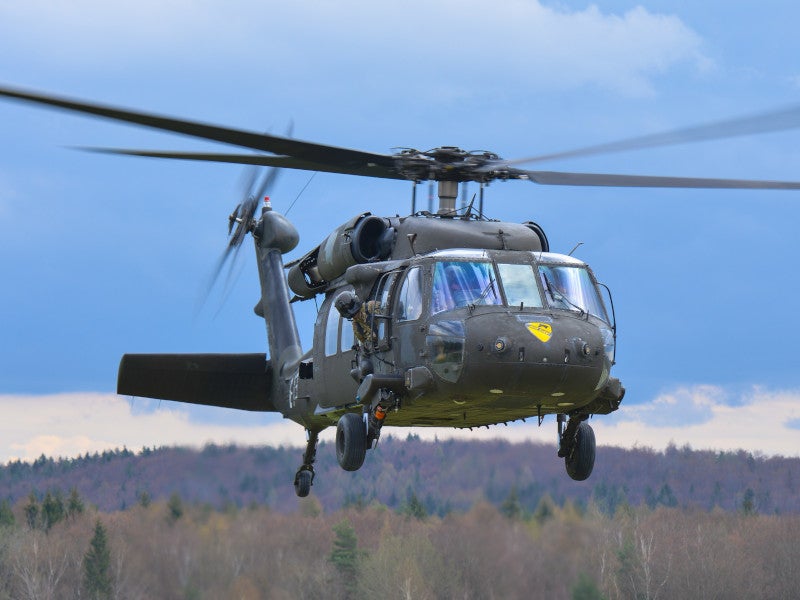UH 60 Technical Specifications and Performance Review
UH 60 Technical Specifications and Performance Review
Blog Article
The Duty of Airplane fit International Transportation and Profession Dynamics
The development of aircraft has actually indelibly transformed international transport and trade characteristics, assisting in unprecedented degrees of connection and performance. Through the facility of robust air freight networks, companies can now navigate international markets with remarkable rate and agility, therefore redefining supply chain techniques. Nevertheless, this makeover is not without its difficulties, as the air travel market grapples with sustainability issues and governing stress. As we discover the diverse influences of aircraft on international trade, it is vital to think about exactly how these variables will form the future landscape of air travel and its role in the economic situation.

Evolution of Air Transportation
The development of air transport has actually been marked by significant technological developments and developments that have actually transformed the means people and products cross the globe. From the Wright brothers' very first powered trip in 1903 to the advancement of supersonic jets, each landmark has emphasized the ruthless pursuit of performance and speed in air travel. Early airplane were mainly primary, restricted by engine power and structural honesty. The intro of innovative products and the rules of aerodynamics in the mid-20th century led to considerable improvements in aircraft reliability, safety and security, and performance.
The last part of the 20th century observed the emergence of commercial air travel as a viable setting of transportation, identified by the introduction of jet engines, which revolutionized air travel by drastically minimizing trip times. The surge of air freight in parallel with passenger solutions has additionally highlighted the adaptability of aeronautics.
Effect On Global Trade
Air transport has exceptionally improved international trade by promoting the swift movement of products throughout large ranges. This expedited logistics capacity allows services to react swiftly to market demands, therefore improving supply chain performance. The capability to transfer disposable goods, high-value items, and time-sensitive items has actually opened brand-new markets and chances for numerous markets, dramatically affecting trade patterns.
Furthermore, the advancement of air freight networks has actually promoted globalization, making it possible for firms to source materials and products from different components of the globe flawlessly. This interconnectedness reduces preparations and expenses, allowing organizations to stay competitive in a progressively international market. In addition, air transport plays a critical role in shopping, where customer assumptions for rapid delivery have driven a surge popular for air freight services.
The effect of airplane on global trade includes the production of tactical profession routes, connecting regions and helping with global collaborations. Countries that purchase air transport infrastructure frequently experience enhanced economic development and boosted international direct financial investment. Overall, the evolution of air transport has not only changed the logistics landscape but has likewise end up being an important element in the characteristics of international trade.

Economic Benefits of Air Travel
A robust aviation market produces substantial financial advantages, adding to job production, tourism, and total economic growth - uh 60. The aviation market supports numerous work worldwide, ranging from straight work in airlines and flight terminals to indirect functions in industries such as friendliness, transport, and logistics. According to industry records, for every job in the aeronautics market, around 3.5 additional work are created in the more comprehensive economy
Tourism is a critical aspect of the financial benefits originated visit this page from air travel. Air travel facilitates international tourism, enabling vacationers to check out diverse destinations, which subsequently boosts regional economies. Nations that invest in their aeronautics facilities typically experience enhanced tourist arrivals, causing greater investing on services such as dining establishments, tourist attractions, and resorts.

In addition, air travel enhances worldwide connectivity, enabling services to access new markets and sources successfully. This connectivity fosters global trade, enabling the rapid motion of items, which is important in today's globalized economic situation. Therefore, industries such as ecommerce and production benefit exceptionally from trustworthy air transport, further driving financial growth. On the whole, the aeronautics field stays a foundation of economic vigor, underscoring its integral duty fit modern-day economic situations.
Obstacles Encountering the Aeronautics Sector
Browsing a complicated landscape of regulatory, ecological, and economic challenges, the aeronautics industry faces considerable hurdles that intimidate its sustainability and development. Laws surrounding safety and safety are continually developing, necessitating continuous conformity and adjustment from airline companies and manufacturers (uh 60). This can bring about increased functional costs and source allotment that takes away from innovation and development initiatives
Additionally, environmental issues have actually become vital, with growing examination over carbon discharges and sound air pollution. The market is under these details pressure to adopt greener innovations and techniques, which commonly require significant investment in r & d. Stabilizing these environmental duties with the need for air travel presents a significant obstacle.
Economic fluctuations, such as increasing fuel costs and geopolitical uncertainties, additionally make complex the landscape. Airline companies frequently grapple with volatile operating expense and varying guest need, which can affect productivity and long-term preparation. Labor shortages and skill spaces in important locations add another layer of complexity, hindering operational performance.
Ultimately, dealing with these complex challenges is necessary for the air travel market to maintain its crucial function in international transportation and profession, while ensuring strength and flexibility in an increasingly affordable market.
Future Patterns in Flight
Arising modern technologies and changing customer preferences are poised to improve the future of air traveling significantly. The combination of artificial knowledge and artificial intelligence is expected to boost operational performance, simplify airport terminal processes, and boost consumer service. Anticipating analytics will certainly help with more precise need forecasting, enabling airlines to optimize trip timetables and pricing models.
Sustainability is ending up being an essential chauffeur in flight, with the aeronautics sector significantly concentrated on lowering carbon exhausts. Advancements in airplane style, such as hybrid and electrical propulsion systems, are being checked out to fulfill environmental targets. The fostering of sustainable aeronautics gas (SAFs) is anticipated to play a vital duty in accomplishing net-zero discharges by 2050.
Customer choices are moving in the direction of customized travel experiences. Airlines are buying advanced data analytics to tailor services and boost client involvement, guaranteeing a much more tailored journey from scheduling to arrival. Additionally, the rise of remote job may lead to increased demand for recreation travel, as individuals look for to integrate work and trip.
Verdict
The advancement of air transport has transformed international trade, generating significant economic benefits while also offering challenges that require tactical monitoring. The continuous adaptation of the aviation industry will certainly be vital for sustaining its contributions to the international economic climate.
The last part of the 20th century observed the introduction of business aeronautics as a feasible setting of transportation, characterized by the introduction of jet engines, which transformed air travel by drastically decreasing flight times. The increase of air freight in parallel with guest solutions has actually additionally emphasized the versatility of aeronautics. In addition, air transportation plays an essential function in e-commerce, where consumer assumptions Clicking Here for rapid shipment have driven a rise in demand for air freight services.
Generally, the development of air transport has not just transformed the logistics landscape yet has also come to be an important element in the dynamics of international profession.
Sustainability is coming to be an essential chauffeur in air traveling, with the aeronautics sector progressively focused on reducing carbon emissions.
Report this page